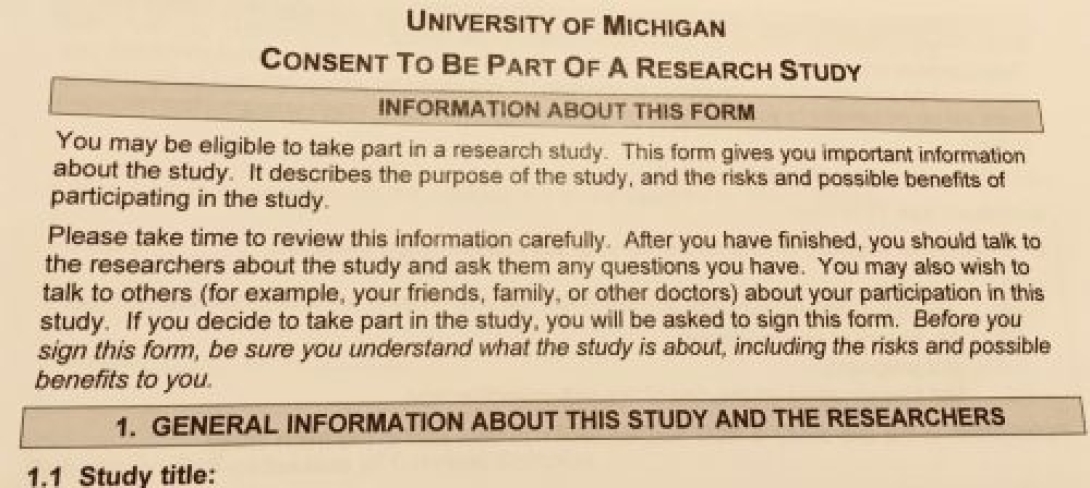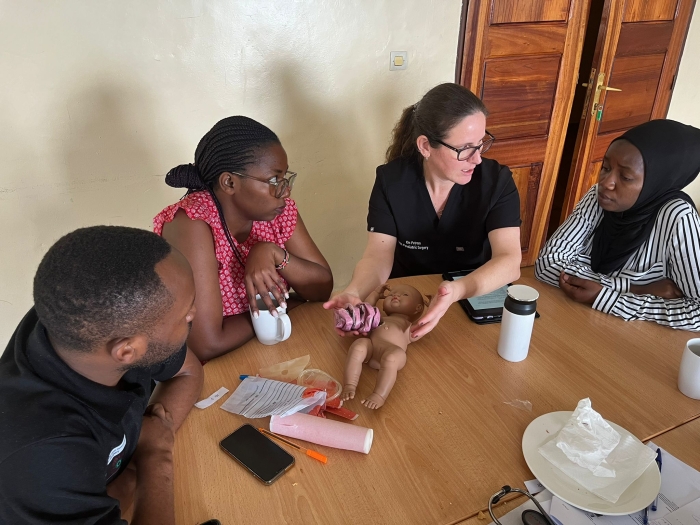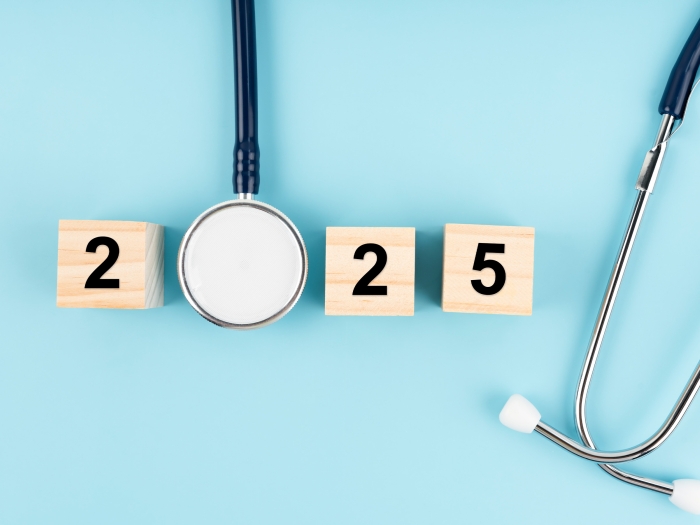The word "scientist" often evokes thoughts of lab coats, mice, and untamed hairdos. Although there is some truth to those images, they don't tell the entire story. For people who don't interact with researchers daily, it feels a bit mysterious. But we all reap the benefits: from safety improvements in vehicle design, to medicines that treat or manage conditions, to knowledge gained about biological and environmental processes. This truth is why proposed budgetary cuts to the NIH (National Institutes of Health) were swiftly rejected this fall with bipartisan support.
I've experienced the process of clinical research from both sides – researcher and participant. As a research assistant, my duties have included subject identification and enrollment, detail-oriented data collection/entry/management, performing chart review of medical records, background and literature reviews. Going through the informed consent process with patients and their families was a means of protecting their rights and aiding in their decision making.
As I start on my clinical rotations, I'm even more appreciative of the power of research. What we learned in the classroom setting is based on a foundation of scientific inquiry. It is staggering when I consider the gravity of the thousands of work hours it takes to determine treatments, therapeutics, and alter protocols. Medicine is dynamic, and questioning the What and the Why are crucial to advancing health care. Many of the interventions that we learned are more nuanced in reality; these lessons come from more up-to-date evaluations comparing approaches.
A big thank you if you've ever volunteered for research; it has meant so much for medical progress and the advancement of safety measures. For those of you who are interested in taking part at the University of Michigan, this site (https://umhealthresearch.org/), can help you get started exploring studies you might be eligible for - whether as someone affected by a certain condition or as a healthy control. In the past few years, I've given samples of blood and saliva, received an fMRI, answered questions about my health behaviors, and completed a dexamethasone suppression test to assess cortisol levels. Being a part of research from the perspective of a participant has opened my eyes and allowed me to experience firsthand some modalities, procedures and medications that I may soon be recommending to patients as a physician-in-training. It has given me even greater empathy and understanding for some of their fears, concerns and questions. (Plus, the occasional compensation is a nice perk…to think, my spit is worth $20!)
Of course, the scientific method can be implemented in each of our daily lives to solve practical problems -- ask questions, collect evidence, implement new strategies, and continually refine. This may take the form of finding the optimal time to commute to work to minimize traffic, thinking of better ways to organize the kitchen cupboards, or indulging in allowing yourself to take a deeper dive and search for answers when random thoughts pop into your head. (Highlights from my Google search history include "What does a pansystolic murmur sound like?")
Using patient-centered decision-making, I've witnessed physicians demystify the jargon of scientific literature, explaining risks and benefits of options, while also clarifying potential/anticipated side effects or other outcomes to help come to a mutual agreement moving forward. No matter what specialty I end up choosing, I hope I have the opportunity to similarly engage with my patients to convey evidence-based recommendations.


Department of Communication at Michigan Medicine
Want top health & research news weekly? Sign up for Health Lab’s newsletters today!





